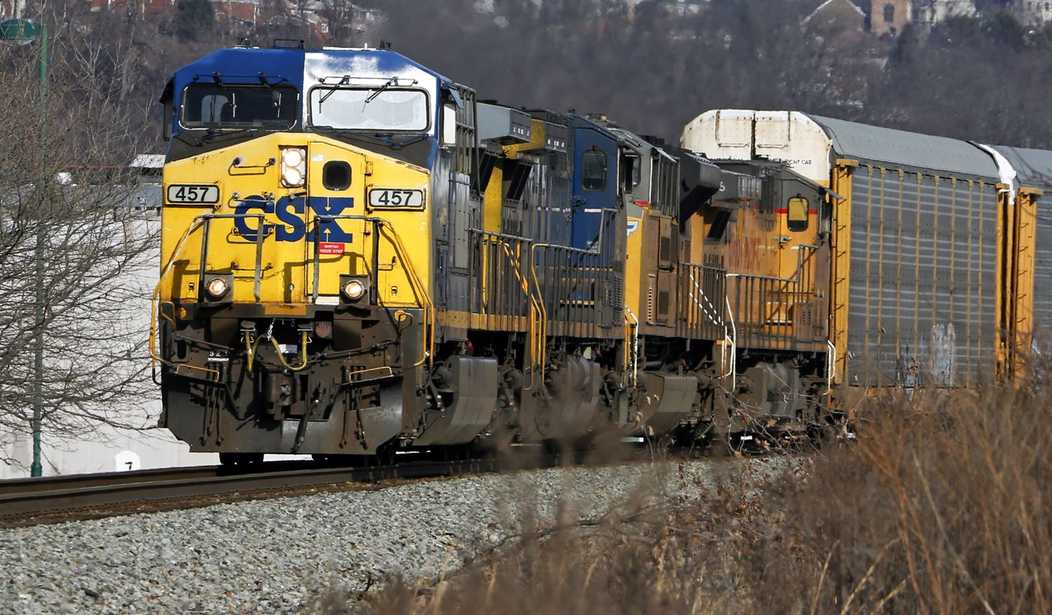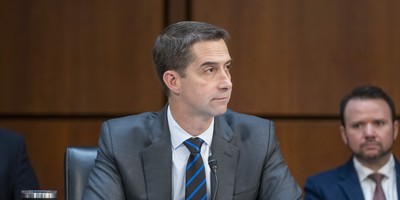President Biden recently announced a spate of actions to “strengthen” supply chains, two years after American and global delivery networks experienced unprecedented challenges. The culprit then amid the COVID haze is well understood now, as goods purchased outpaced the services that have come to dominate U.S. GDP, leaving transportation systems and warehouses unable to meet consumer demand.
The White House’s actions primarily revolve around the expanded use of the Defense Production Act, the creation of new government bodies, and the charge for agencies to better coordinate and share data. Given how much the supply chain problems contributed to the inflation still plaguing U.S. consumers, the Biden administration’s actions may seem understandable.
Yet the new measures also lack the teeth that more meaningful and politically challenging actions would have, such as removing barriers to trade – like tariffs or the outright ban of imports like baby formula – or eliminating long-harmful measures like the Jones Act, which prohibits foreign carriers and crews from using domestic water routes.
More troubling though is that regulators within the Biden administration are pursuing policies that would slow supply chains and increase the cost of goods. A prime example is the desire by some at the U.S. Surface Transportation Board, or the STB, and some in Congress, to consider policies that would turn private freight railroads into public utilities.
They argue that our nation’s railroads are uncompetitive and need the government to supplant market decisions. Yet a recent study shows freight shipping is significantly more competitive today than in the past.
At issue is the industry’s common carrier obligation, a broad requirement that disallows railroads from refusing service requests. The standard is purposefully broad, recognizing that railroads aren’t monopolies nor are they electric utilities transmitting electrons from one end to another.
Recommended
Re-regulatory policies under consideration would allow for stricter control over what services rail freight providers must offer, the prices for those services, and how freight rail equipment is deployed to serve their contracts. Legislation in Congress would expand STB’s authority to direct freight rail employment and equipment. Government would micromanage private enterprise to a scary level, including how many services representatives are required for a given customer. All of this adds to costs and ultimately consumer prices.
When considering a mode of transportation in the context of the supply chain that continues to captivate policymakers, one must remember that the private sector, including railroad companies, does not have unlimited resources. When negotiated in the unrestrained market the needs of the customer, the rail operator, and other potential clients are all considered. The private sector, and not the regulator, is better situated to judge their own capacity, capabilities, and needs of their customers seeking products and services. Determining who a railroad company will serve and how it will do so by bureaucratic order removes the expertise of the railroad in its own business.
A government command and control regulatory regime is also vastly different than what Congress has long favored, which is that two parties settle these matters through private contract negotiations.
Legislation or regulations that target only one mode of transport will only serve to make that mode less competitive compared to alternative transportation choices, like trucking and pipelines. This only further distorts the allocation of resources invested between modalities away from regulated modalities to those that are less regulated. That distortion will have negative consequences for industries, taxpayers, and the environment, as more trucks are needed to replace rail transportation.
With the growth of competition in the freight shipping industry, the justification for public utility-style regulations on rail shipping has long disappeared and has no place in a fast-changing supply chain. Instead of treating modern freight rail as a monopoly, the STB and Congress should look for ways to streamline regulations, encourage investments, and improve safety. This would ensure that rail freight options are competitively priced.
On October 14, 1980, President Jimmy Carter signed the Staggers Act that partially deregulated the rail industry and brought life back into an ailing industry, boosted productivity, and led to billions of dollars of consumer benefits, as well as lower prices for shippers. In the face of increased transportation competition, a return to heavy-handed regulations would do so much more harm than good.
Removing the last vestiges of the monopoly regulations that freight rail once faced would benefit America’s supply chain, increase investment and intermodal competition, lower consumer prices, and create a stronger freight transport system for the 21st century.
Steve Pociask is president and CEO of the American Consumer Institute, a nonprofit education and research organization. For more information about the Institute, visit www.TheAmericanConsumer.Org or follow us on Twitter (X) @ConsumerPal.
























Join the conversation as a VIP Member